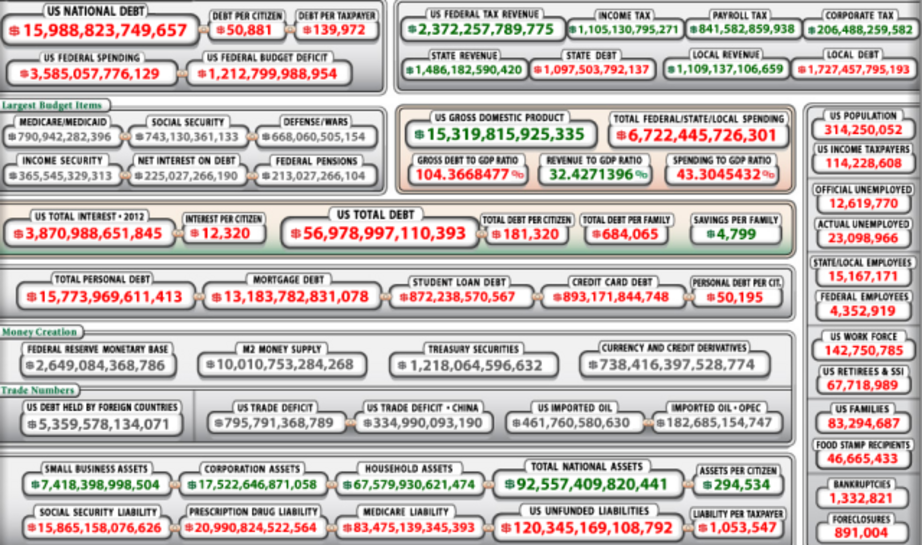Is China buying the USA?
How much of the USA does China own ? how much money does the USA owe China? How many American States would China take ownership over to cancel the debt?
HOW MUCH Does China own?
According to a Forbes report China is one of the few countries that still views the USA as a stable and desired place to invest money. Not only are Chinese investors and the Chinese state buying up luxury homes and apartments across all major US cities, they are also buying up US treasury bonds at an alarming rate. China has also been buying up Texas oil fields, major Chinese company Chesapeake Energy, holds 600,000 acres of South Texas oil and gas fields.
China and Japan combined now own 2300 billion dollars of treasury securities
The U.S. debt was more than $14.3 trillion during the so-called debt crisis of 2011, when the level of borrowing reached its statutory limit and the president warned of a potential default if the cap wasn’t raised. To put China’s ownership of U.S. debt in perspective, its holding of $1.2 trillion is even larger than the amount owned by American households. U.S. citizens hold only about $959 billion in U.S. debt, according to the Federal Reserve.
Some Republicans have expressed concern over the amount of U.S. debt owned by China. Republican U.S. Rep. Michele Bachmann, a 2012 presidential hopeful, joked that when it came to the debt “Hu’s your daddy,” a reference to Chinese President Hu Jintao.
Add this massive figure to the value of US business, properties and land owned by China and and you get a very big figure!

Why is China buying up America?
To put it in simple terms, – TRADE, China exports $1.58 trillion of its production, making it the world’s second largest exporter after the EU. China ships 18% of its exports to the U.S. So the Chinese need the Americans to keep buying Chinese products.
China does a lot of manufacturing for foreign companies, including U.S. companies. The raw materials are shipped to China, where factory workers build the final products and ship them back to the U.S. In this way, a lot of China’s exports are really for American companies for American consumers. China primarily exports electrical and other types of machinery, especially computers and data processing equipment, as well as optical and medical equipment
So what could go wrong?
Premier Wen once said “We have lent a huge amount of money to the U.S., so of course we are concerned about the safety of our assets.” China lost a lot of money it invested in Fannie Mae and Freddie Mac and does not want to see that happen again.
China is now generally seen as the next candidate for the superpower distinction, with some actually asserting that China has aims to take over the world.
Top American lawmakers on both sides of the aisle are expressing serious concerns about a bid by the communist dictatorship ruling mainland China to purchase Canadian energy firm Nexen and its vast U.S. oil and natural gas holdings. The deal by the Chinese regime, acting through its state-owned front company China National Offshore Oil Corporation (CNOOC), also represents a potential national security risk, warned Republican and Democrat members of Congress.
Will China Take over the USA?
China has a problem — its population does not match its resources and gross domestic product. China’s more than 1.3 billion people don’t have the resources to adequately care for themselves [source: University Nebraska at Omaha]. This has led China to begin exporting its people, in a sense, by setting up shop in other parts of the world. Look no further than Africa, where China has rapidly developed its presence during the last decade, in countries like Nigeria and Angola, among others. During that time, more than 750,000 Chinese have moved to Africa [source: Malone]. Some experts contend that the plan is to increase this number to the hundreds of millions, helping to put a dent into China’s natural resource problem by tapping into Africa’s resources, while thinning the herd in the home country [source: Malone]. Air and sea routes are increasing between China and African nations as massive deals are made for commodities, trade, labor and military cooperation. Chinese private schools, embassies and cultural centers are popping up in places like Rwanda, Nairobi and Angola. Angola even has its own “Chinatown” district.
In return, countries in Africa get a willing trade partner and assistance and weaponry for its military factions. Africa also receives the supposed benefit of jobs and infrastructure building. While trade has increased from 5 million Yuan to 6 billion in the last 10 years, many contend that Africa is getting the short end of the stick, importing cheap Chinese toys and goods, while exporting valuable commodities like oil and timber. It’s estimated that 70 percent of African timber ends up in Chinese ports, a figure that hints at massive deforestation [source: Malone]. There are also assertions that Chinese mining operations in Africa are staffed with African laborers earning less than one Yuan per day, which is about 14 cents [source: Malone]. The weapons sent to Africa often supply arms that help to fuel the continent’s many civil wars. And in some parts of Africa, Chinese-only communities have gates, and blacks are not allowed to enter.
Similarly, China has reached out to Latin America as well, bypassing the United States as Brazil’s No. 1 trading partner, and coming in second to the United States in Argentina, Costa Rica, Chile, Peru and Venezuela. With this kind of reach, and a population at well over a billion people, it’s no wonder that a large percentage of the global financial news focuses on China


